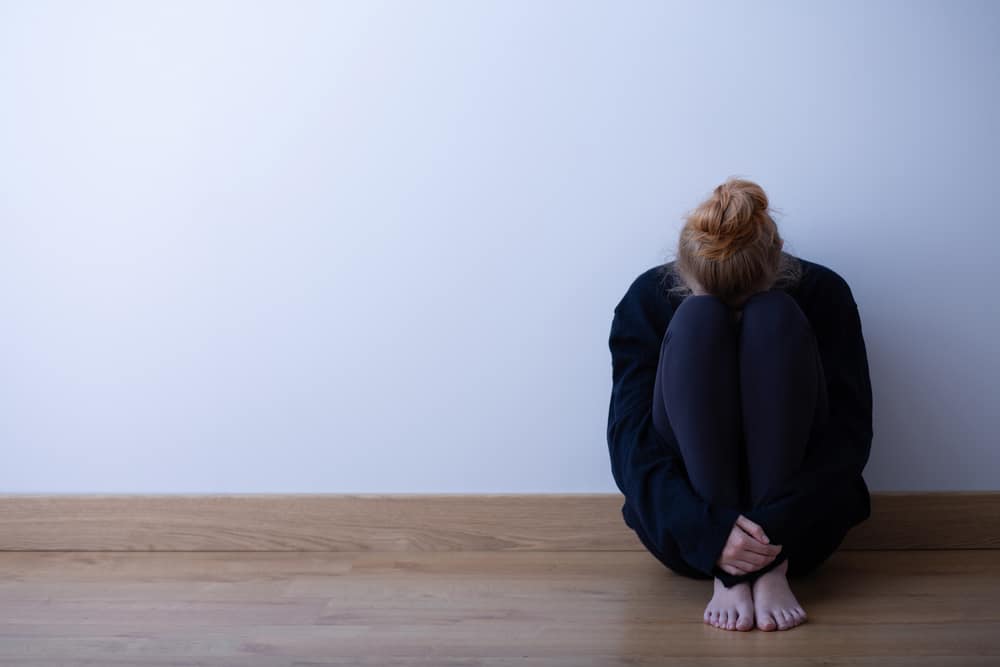
Many life events can cause you to grieve. The biggest instance of grief is the death of a loved one, but other instances such as the loss of a pet, getting fired, moving from your childhood home, a divorce, or a miscarriage can all cause you to go through the stages of grief.
Big challenges or changes can cause us to feel a range of emotions including disbelief or anger. How do you handle co-existing emotions while still living a satisfying life? In this blog, we will discuss how grief can look different for each person and give some tips to help aid in living with grief.
How To Know If You’re Dealing With Grief
Each instance of change and challenge will look different for each person. Grief is usually accompanied by a large loss and you will then move through the stages. Grief is a process, it isn’t just one instance or time where you are either sad or not sad. Even subtle losses can cause feelings of grief, anger, sadness, or loneliness.
No one should be able to tell you how you should grieve or for how long. Each experience is unique and no one person will deal with loss in the same way. No matter what your grief process looks like, your feelings are valid.
The Stages Of Grief
There are five common stages of grief that most people move through when dealing with a tragic loss or death. People can move back and forth through the stages or move through each stage once. There is no “right or wrong” pattern and some people don’t even experience all the stages of grief when healing.
Denial- This stage is where people can not comprehend that this is happening to them. They feel that it must be a fluke or a joke or they may be in shock over the situation.
Anger- This is a stage and a big emotion that comes fairly soon after the loss has occurred. People may look for someone to blame or wonder what they did to deserve this.
Bargaining- Bargaining can look like asking for something else to happen in return for the loss never occurring. Some may plead with a higher power to take them instead, others may say they will be a better person if _____ happens, etc.
Depression- People are too sad to function in their normal capacity when they are in the depression stage. This can lead to neglecting tasks like work, house cleaning, school, or social obligations.
Acceptance- The final stage is accepting what has happened and being ok to move forward with living your own life. Acceptance may take longer to happen for different people.
Lean On Friends And Family Members

It may be easier to withdraw from people in your life when you are coping with grief, but those that love you can be a source of strength during this time. Even if you are not up to socializing, family, and friends could help with chores, making meals, sorting through loved ones’ items, taking children to school, and more.
People in your life may not know how to help without overstepping. Asking people for help is not a weakness and many will be happy to be a listening ear or shoulder to cry on.
Find A Creative Way To Express Your Feelings
Bottling up your feelings is not the healthiest way to deal with grief and it can lead to mental health crises and make symptoms of grieving worse. Creative outlets like journaling, painting, writing, exercising, or other hobbies will give your brain something to focus on and a way to process how your emotions change daily.
Don’t Neglect Your Health
Turning to drugs, alcohol, or other substances can be a way for people to attempt to cope with the loss. Neglecting to eat or to get some exercise are also ways many individuals neglect their health while dealing with grief. When dealing with grief make sure to drink plenty of water, get enough sleep, and eat protein, fruits, and vegetables. Even though a loss of a loved one or opportunity can be devastating, your health and well-being still matter.
Taking the time to make nutritious meals can be a creative outlet as well. Getting out in nature and listening to sounds can be a way to clear your head. Taking care of your health during a hard time doesn’t have to be stressful. Whatever energy you can muster that day, will be enough.
Set Aside Grief Time
It can be hard to experience grief while still trying to live a normal life. Living with grief is often just a new normal that you will need to navigate. It can be helpful for people to set aside time in their week to sit with their grief. This does not mean that you won’t feel in constantly at other times, but grief time helps you to focus on it for a short while and then shift your focus to other priorities.
Grief is heavy, so giving yourself time to cry, visit with a therapist, visit the person’s grave, turn off your cell phone, etc., can be very healing. Life continues to go on after a loss, but moving slowly through the next few years is ok when dealing with grief.
How To Face Large Milestones After Loss
Planned vacations, the anniversary of the loss, birthdays, anniversaries, or holidays are some of the hardest points to navigate after a loss. After a recent loss, it is recommended to postpone major decisions or major travel, just to give yourself time to honor this loss or figure out how emotions will affect your decision-making.

The anniversary of a death can be one of the hardest obstacles when living with grief. People may experience a wave-like pattern of grief and the height of a way can come when the person has been gone for a year. People may worry about forgetting the sound of their loved ones’ voices, or feel guilty about moving on with their life. These are normal emotions to feel. Taking time to honor this loved one and thinking about memories of them is key.
When dealing with grief, you don’t want to live forever in the past but learn how to move forward without their physical presence in your life. If you are helping someone through grief, make sure they remember good memories of the one they lost. Remember the anniversaries and important days and check on them.
